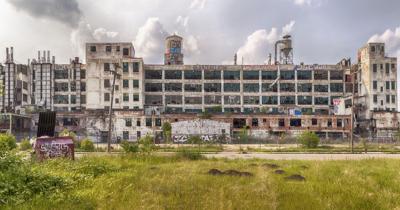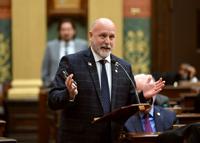(The Center Square) – Gov. Gretchen Whitmer signed four bills expanding uses for transformational brownfield zones to fill otherwise abandoned properties with affordable housing and other businesses to boost property values.
“Today, we are taking a solid step forward on our Make it in Michigan strategy to help more people, businesses, and communities ‘make it’ in Michigan,” Whitmer said in a statement. “Whether it’s renovating the old bank or theater on main street or building affordable housing on abandoned land, Michigan communities are on the move, open for business, and showing the world how much we have to offer. These bills will create good-paying jobs, grow the economy, and lower costs for businesses and families looking for affordable housing options.”
Senate Bills 129, 130, 131, and 132 allow affordable housing development projects through the state Brownfield program.
Redevelopment of brownfields – vacant or abandoned properties with known or suspected contamination – increases property values on the revitalized site and nearby properties.
The bills allow tax revenues captured through local brownfield redevelopment authorities to fund affordable housing development costs with the approval of the Michigan State Housing Development Authority.
Additionally, the bills increase the amount for reasonable costs of a brownfield plan from $30,000 to $50,000 and increase the amounts of tax increment revenue attributable to local taxes a brownfield redevelopment authority could use each fiscal year.
Bill sponsor Sen. Kristin McDonald Rivet, D-Bay City welcomed the bill’s signing.
“We’re not just removing eyesores, we’re removing barriers to transform literal and economic landscapes,” Rivet said in a statement. “I’m proud to help give local governments this option to redevelop blighted properties for residential purposes because it will improve our environment, revitalize neighborhoods and increase affordable housing.”
MSHDA Executive Director Amy Hovey called the tool a “game-changer” for local governments to provide affordable housing.
“The new TIF tool will be a game-changer for MSHDA and local governmental units interested in developing attainable/workforce housing in their communities,” Hovey said in a statement. “It’s a flexible tool that can be used to help fund rental, for sale, single family, multifamily, new construction, and rehabilitation opportunities for those up to 120% of area median income. Having an adequate supply of housing in this range is critical for attracting and retaining talent and helping more people reach their full potential in Michigan.”
SB 289, which hasn’t yet been signed, would establish the Transformational Brownfield Fund to help convert abandoned property into space ready for business investment and community revitalization projects.
Quentin L. Messer, Jr., CEO of the Michigan Economic Development Corporation, said the change will attract more businesses to Michigan.
“This legislation amplifies our Make it in Michigan economic development framework that focuses on people, places, and projects,” Messer said in a statement. “It will allow us to win more for Michiganders by accelerating our ability to impact where people and businesses call home, including accessible housing and attractive physical places.”







